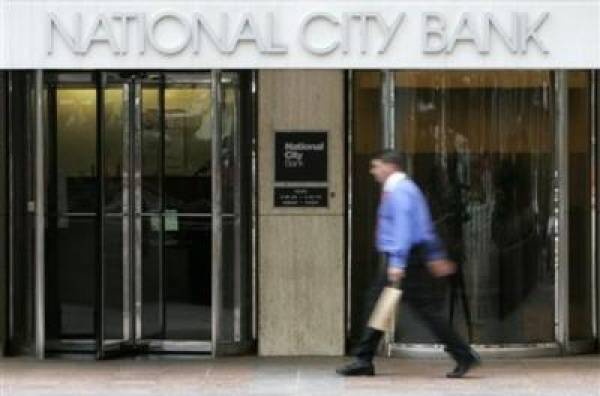US Banks to Fail: Prediction Market Lists Odds

Online gambling site Intrade had posted odds for a handful of US bank failure possibilities Tuesday, with very few bidders thus far.
Thus far gamblers believe that there are two US banks particularly vulnerable as of Tuesday: National City (bid of 4.0 at press time) and Washington Mutual (bid of 5.0 at press time).
National City (NYSE: NCC) halted trading midday to address rumors that it was facing a run on the bank.
"National City is experiencing no unusual depositor or creditor activity," the troubled Cleveland bank said in a statement issued mid-day. "As of the close of Friday's business, the bank maintained more than $12 billion of excess short-term liquidity. Further, as a result of our recent $7 billion capital raise, National City maintains one of the highest Tier I regulatory capital ratios among large banks."
That did little to quell investor concerns. National City's shares were down almost 28 percent to $3.20 at the end of New York trading. The shares had traded as low as $2.99 earlier in the day.
Washington Mutual (NYSE: WM) skidded almost 35 percent to $3.23 per share. The Seattle bank issued a statement after the market closed to tout its financial strength.
"The company significantly exceeds all regulatory 'well-capitalized' minimums for depository institutions," the bank said. "In addition, WaMu has current excess liquidity of more than $40 billion and a national franchise with approximately $150 billion in retail deposits."
Other banks listed on the Intrade website include: First Horizon, First Fed, BankUnited, Downey, Oriental, Regions Financial and Zions Bankcorp. No bids were placed at press time, however.
Notably absent from the list was Wachovia, which took another hit on Wall Street Tuesday with news that the bank "faces a bleak outlook".
Wachovia Corp.'s stock shook off earlier losses, recovering from an early-morning shock when an influential analyst at Oppenheimer & Co. downgraded the shares and said that shareholders face a "bleak" outlook.
The bank's stock had tumbled 15% when the market opened, but posted a modest gain of 1% by midmorning and reached an intraday high of $10.23. It traded at $9.48 at last check.
Shares of the Charlotte, N.C.-based company -- one of the largest banks in the United States -- have fallen more than 80% from this time a year ago.
Concerns over bank failures grew following last week's abrupt closure of IndyMac, once among the largest mortgage banks. Those with deposits up to $100,000 were guaranteed all of their funds. Anything over (uninsured) were to get 50 percent and maybe more depending on monies derived from any sale of the bank.
There is $6.84 Trillion in bank deposits of which $2.60 Trillion is uninsured across the entire banking sector.
Total cash on hand at banks is $273.7 Billion.
"If uninsured depositors start asking for cash on the barrelhead, things can get mighty ugly mighty fast," Mike "Mish" Shedlock of Global Economic Analysis writes.
----
Christopher Costigan, Gambling911.com Publisher CCostigan@CostiganMedia.com
Originally published July 15, 2008 1:50 pm EST













